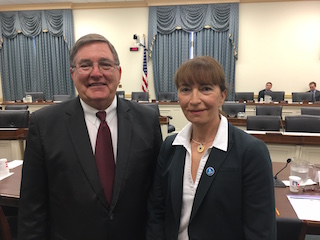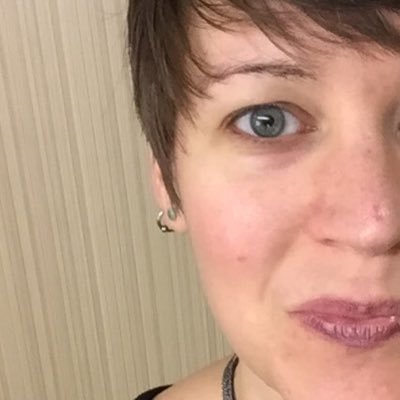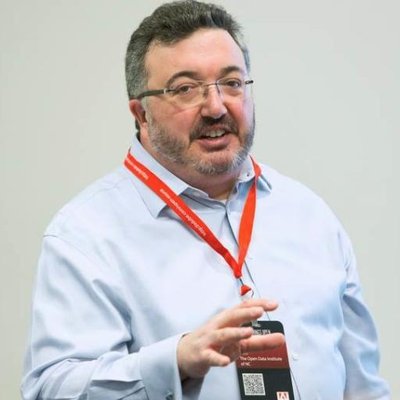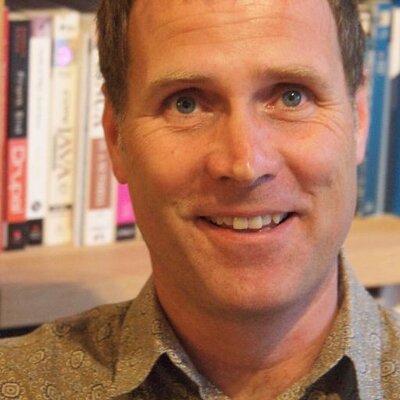 However promising gamification in health care may be, it is the AR that may well hold the most promise for health care. Google was not wrong to pursue Google Glass, just premature. Pokémon Go may be signaling that we're now finally ready for AR, and that it will be consumers as well as professionals who can benefit from it. The potential uses in health care are virtually endless, but here are a few examples...Ever feel like your doctor spends too much time staring at your chart or a screen? Instead of looking there for information about you, how much better would it be if he/she was looking at you, with AR notations for key information about you?...
However promising gamification in health care may be, it is the AR that may well hold the most promise for health care. Google was not wrong to pursue Google Glass, just premature. Pokémon Go may be signaling that we're now finally ready for AR, and that it will be consumers as well as professionals who can benefit from it. The potential uses in health care are virtually endless, but here are a few examples...Ever feel like your doctor spends too much time staring at your chart or a screen? Instead of looking there for information about you, how much better would it be if he/she was looking at you, with AR notations for key information about you?...
News
Halamka Discusses Three Disruptive Care Coordination Innovations In Use at Beth Israel
 Would you buy an iPhone if the only apps that ran on it were written by Apple? Maybe, but the functionality would not be very diverse. The same can be said of EHRs. Athena, Cerner, Epic, Meditech, and self developed EHRs such as BIDMC’s webOMR are purpose-built transaction engines for capturing data. However, it is impossible for any single vendor to provide all the innovation required by the marketplace to support new models of care I’m a strong believer in the concept of third party modules that layer on top of traditional EHRs in the same way that apps run in the iPhone ecosystem...
Would you buy an iPhone if the only apps that ran on it were written by Apple? Maybe, but the functionality would not be very diverse. The same can be said of EHRs. Athena, Cerner, Epic, Meditech, and self developed EHRs such as BIDMC’s webOMR are purpose-built transaction engines for capturing data. However, it is impossible for any single vendor to provide all the innovation required by the marketplace to support new models of care I’m a strong believer in the concept of third party modules that layer on top of traditional EHRs in the same way that apps run in the iPhone ecosystem...
- Login to post comments
- News
Could Pokémon Go Help Fix Healthcare and Lead to Usable EHRs?
- Login to post comments
- News
Humetrix Presents Disruptive Personal Health App Solutions Before US Congress
 As a former practicing physician, data scientist and public health officer, I became a healthcare IT entrepreneur focusing on mobile technology because I believed that the best way to treat patients, improve health outcomes, and reduce waste is to put patients’ critical health information into their own hands, so they can share that information with their physicians when needed. With 68 percent of Americans using a smart phone daily1, and new HIPAA rules giving each of us a legal right to electronically access our health records, consumer facing mobile health applications can be a cure to the information blocking which is still plaguing our health care system. In a healthcare environment in which one-third of expenditures are wasted3 on redundant care, and medical errors representing the third leading cause of death in the U.S. today4, having immediate access to a patient’s health history can literally save lives and also significantly reduce healthcare costs.
As a former practicing physician, data scientist and public health officer, I became a healthcare IT entrepreneur focusing on mobile technology because I believed that the best way to treat patients, improve health outcomes, and reduce waste is to put patients’ critical health information into their own hands, so they can share that information with their physicians when needed. With 68 percent of Americans using a smart phone daily1, and new HIPAA rules giving each of us a legal right to electronically access our health records, consumer facing mobile health applications can be a cure to the information blocking which is still plaguing our health care system. In a healthcare environment in which one-third of expenditures are wasted3 on redundant care, and medical errors representing the third leading cause of death in the U.S. today4, having immediate access to a patient’s health history can literally save lives and also significantly reduce healthcare costs.
- Login to post comments
- News
How Drupal Can Save Taxpayers' Time and Money
 Providing web services for the government of one of the most populous U.S. states (Georgia) is no small task, but it's made a bit easier thanks to Drupal, open source software, and the work of Kendra Skeene and the GeorgiaGov Interactive team. In her lightning talk at Great Wide Open 2016, Skeene explains the role Drupal and open source software play in the Georgia's efforts to save taxpayer time and money...
Providing web services for the government of one of the most populous U.S. states (Georgia) is no small task, but it's made a bit easier thanks to Drupal, open source software, and the work of Kendra Skeene and the GeorgiaGov Interactive team. In her lightning talk at Great Wide Open 2016, Skeene explains the role Drupal and open source software play in the Georgia's efforts to save taxpayer time and money...
- Login to post comments
- News
Do We Need More or Less Healthcare IT Regulation and Legislation?
 Just as I clarified last week in my post about Certification, the answer to the question “do we need more or less healthcare IT regulation and legislation” is that we need the right amount of the right regulations/legislation. Sometimes when clinicians prescribe medication, although it does therapeutic good, it creates side effects which need to be addressed by changing a dose or by adding additional medications. Such is the case with HITECH. It was generally good medicine, but now that we’ve seen the side effects on workflow, clinician burden, and efficiency, there needs to be a dose adjustment...
Just as I clarified last week in my post about Certification, the answer to the question “do we need more or less healthcare IT regulation and legislation” is that we need the right amount of the right regulations/legislation. Sometimes when clinicians prescribe medication, although it does therapeutic good, it creates side effects which need to be addressed by changing a dose or by adding additional medications. Such is the case with HITECH. It was generally good medicine, but now that we’ve seen the side effects on workflow, clinician burden, and efficiency, there needs to be a dose adjustment...
- Login to post comments
- News
The Current State of Open Data in the US Government
 In this article I will discuss the importance of open data in government, the current state of open data in government, and what we need to do to implement true open data. When I read an article on the Center for Data Innovation site, Congress Is Stepping Up to Protect Open Data, I was struck by two feelings: elation and surprise... The article links to a 2013 McKinsey report, Open data: Unlocking innovation and performance with liquid information, that says the national open data initiative of "open by default" represents real economic and transparency value for the public. The report points out that there is no assurance that open data will survive the end of the current administration...
In this article I will discuss the importance of open data in government, the current state of open data in government, and what we need to do to implement true open data. When I read an article on the Center for Data Innovation site, Congress Is Stepping Up to Protect Open Data, I was struck by two feelings: elation and surprise... The article links to a 2013 McKinsey report, Open data: Unlocking innovation and performance with liquid information, that says the national open data initiative of "open by default" represents real economic and transparency value for the public. The report points out that there is no assurance that open data will survive the end of the current administration...
- Login to post comments
- News
Europeans Joining Forces to Promote Open Source Software in Healthcare
 Belgian, British and German advocates of open source in healthcare want to join efforts, hoping to raise interest, and to strengthen the network of healthcare software specialists. A conference is tentatively being planned in London (UK) early next year. “Hospitals and other healthcare organizations, medical specialists and general practitioners are reluctant to adopt open source software”, says Etienne Saliez, a Belgian retired medical IT systems specialist. “What is needed is a strong network of professional support services providers of open source solutions” he adds.
Belgian, British and German advocates of open source in healthcare want to join efforts, hoping to raise interest, and to strengthen the network of healthcare software specialists. A conference is tentatively being planned in London (UK) early next year. “Hospitals and other healthcare organizations, medical specialists and general practitioners are reluctant to adopt open source software”, says Etienne Saliez, a Belgian retired medical IT systems specialist. “What is needed is a strong network of professional support services providers of open source solutions” he adds.
- Login to post comments
- News
The Most Important Health Care Jobs of the Future
 Fast Company ran an interesting article The Most Important Design Jobs of the Future, predicting 18 of the most important design jobs of the future (at least 3 to 5 years out). A couple of them were in health care, and arguably all of them would have some impact on health care, but I thought it might be fun to do a similar list specific to health care, and not limited to design. Let's hope no one comes back in a few years to show how wrong I was. I'll skip the usual suspects -- e.g., doctors, nurses, pharmacists. Yes, those jobs will (almost) certainly still be around, but they may not be central as they are today. And those jobs will evolve in ways that reflect the trends illustrated by the jobs I list...
Fast Company ran an interesting article The Most Important Design Jobs of the Future, predicting 18 of the most important design jobs of the future (at least 3 to 5 years out). A couple of them were in health care, and arguably all of them would have some impact on health care, but I thought it might be fun to do a similar list specific to health care, and not limited to design. Let's hope no one comes back in a few years to show how wrong I was. I'll skip the usual suspects -- e.g., doctors, nurses, pharmacists. Yes, those jobs will (almost) certainly still be around, but they may not be central as they are today. And those jobs will evolve in ways that reflect the trends illustrated by the jobs I list...
- Login to post comments
- News
Lessons Learned for Building an Open Company with Transparent Collaboration
 In the first part of this two-part series, Building a business on a solid open source model, I described how an open source business needs to provide a solid ground for all stakeholders, users, contributors, employees, customers, and of course investors. Foundations, licenses, and trademarks can be helpful in building an open ecosystem. Open source communities need supporting organizations to work transparently, otherwise there are barriers to contribution. Code might be public, but code dumps (like Google tends to do with Android) don't always facilitate collaboration. To encourage collaboration, you must go one step further and be proactive...
In the first part of this two-part series, Building a business on a solid open source model, I described how an open source business needs to provide a solid ground for all stakeholders, users, contributors, employees, customers, and of course investors. Foundations, licenses, and trademarks can be helpful in building an open ecosystem. Open source communities need supporting organizations to work transparently, otherwise there are barriers to contribution. Code might be public, but code dumps (like Google tends to do with Android) don't always facilitate collaboration. To encourage collaboration, you must go one step further and be proactive...
- Login to post comments
- News
An Alternative Proposal for Certification
 Some have suggested that my comments over the past few months about the Meaningful Use program, MACRA/MIPS, and Certification imply that we should just give up - throw out the baby with the bath water. That’s not what I’ve written.
Some have suggested that my comments over the past few months about the Meaningful Use program, MACRA/MIPS, and Certification imply that we should just give up - throw out the baby with the bath water. That’s not what I’ve written.
Here’s a clarification. I believe MACRA/MIPS is the right trajectory - create a set of desirable policy outcomes, then enable clinicians to choose technology, quality measures, and process improvements that are relevant to their practice...
- Login to post comments
- News